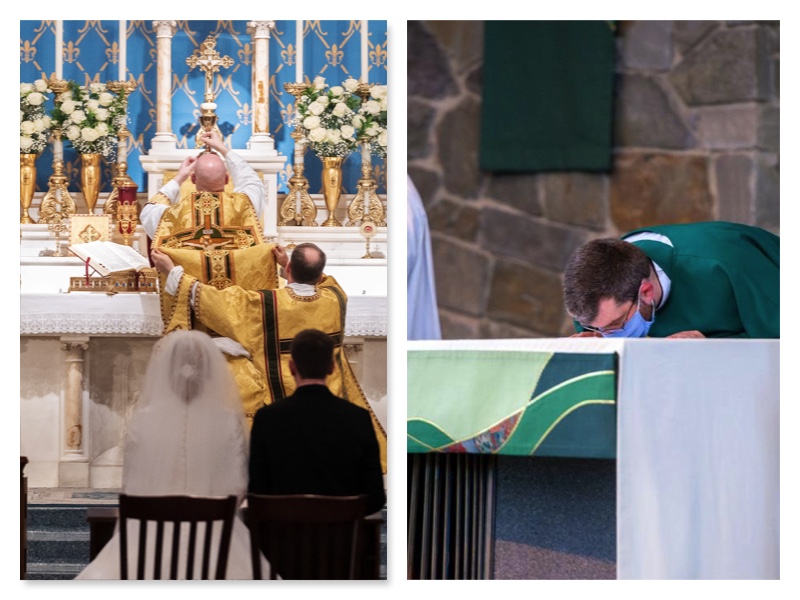Dr. Taylor Marshall spoke today about how Pope Benedict XVI attempted to bifurcate both the Roman Rite and the Papacy. In other words, it seems that the Roman Rite was bifurcated into the “ordinary form” and “extraordinary form” in the 2007 document, Summorum Pontificum and it seems that the Papacy was split into two as a “contemplative Pope” and an “active Pope” as even the Vatican’s Archbishop Georg Gänswein has explained it.
Such errors of creating new (and impossible) theological realities may be blamed upon what is called a “Hegelian dialectic.” Archbishop Viganò has this criticism of Pope Benedict XVI’s philosophy of attempting to create new realities from his own brain:
His Hegelian philosophical approach led him to apply the thesis-antithesis-synthesis scheme in the Catholic context, for example, by considering the documents of Vatican II (thesis) and the excesses of the post-conciliar period (antithesis) things to be reconciled in his famous “hermeneutics of continuity” (synthesis); nor is the invention of the Emeritus Papacy an exception, where between being Pope (thesis) and no longer being Pope (antithesis), the compromise was chosen to remain Pope only in part (synthesis).
Archbishop Viganò is here saying that a synthesis of truth and error produces only error. He then goes so far as to write here on the 9th of June 2021:
They are mistaken therefore who believe that it is possible to hold together two opposing forms of Catholic worship in the name of a plurality of liturgical expression that is the daughter of the conciliar mentality no more and no less than it is the daughter of the “hermeneutic of continuity.”
I actually agree with Archbishop Viganò in his criticism. And you know who else agrees with this? All of the liberals today who hate the Apostolic Mass and the Apostolic Faith. But their renewed attack against the ancient Liturgy today is good for us Apostolic Catholics because we are now all in agreement (except the lukewarm trads licking their wounds) that it impossible “to hold together two opposing forms of Catholic worship in the name of a plurality of liturgical expression.”
Thankfully, we are now seeing that “the plurality of liturgical expression” must one way or another come to an end. There is only one Roman Rite. There is only one Roman Pope. The funny thing is that the enemies of God do not realize they are helping God and the promotion of the Apostolic Faith in their most recent attack. They are making us see. Yes, the enemies of God are making us choose. Yes, they are sifting out the boys from the men, the wheat from the chaff.
You would think I of all people would write a blog post in defense of Summorum Pontificum during this week of turmoil. But I fully agree with Archbishop Viganò who critcizes Summorum Pontificum thus:
The just honor in which the traditional liturgy ought to be held was tempered by its being placed on an equal level with the liturgy of the post-conciliar reform, with the former being defined as the “extraordinary form” and the latter as the “ordinary form,” as if the Bride of the Lamb could have two voices — one fully Catholic and another equivocally ecumenical — with which to speak at one moment to the Divine Majesty and at the next to the assembly of the faithful.
Notice that Viganò is here implying that we must get over this modernist delusion of living “as if the Bride of the Lamb could have two voices.” No, we know the Bride of the Lamb listens to only One Voice: “My sheep hear My voice, and I know them, and they follow Me. I give them eternal life, and they will never perish, and no one will snatch them out of My hand.”—John 10:27-28
So, I find the recent news from the Vatican today to be everything we ironically now need to exit the delusion of listening to two voices: We must now choose. There can be no bifurcation of the Roman Rite. There can be no bifurcation of the Papacy. This is because “there is one body and one Spirit—just as you were called to the one hope that belongs to your call— one Lord, one faith, one baptism, one God and Father of all, who is over all and through all and in all.”—Eph 4:4-6
